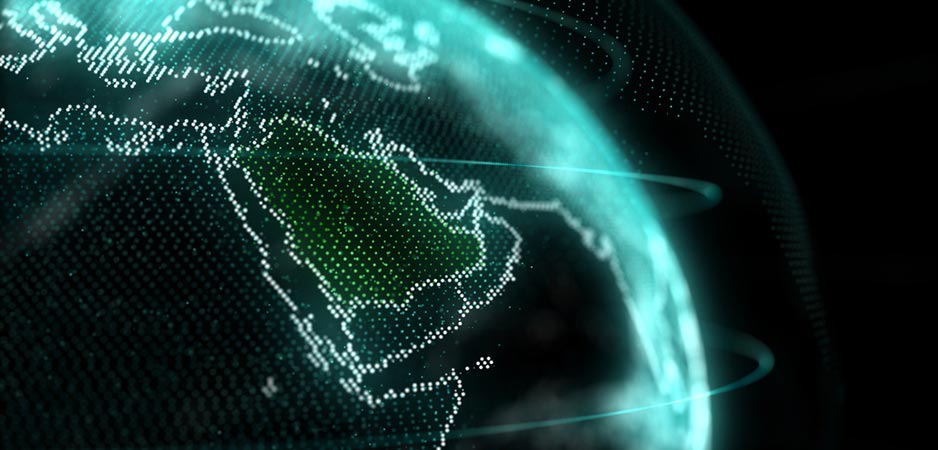The United Arab Emirates, a small and ambitious country in the Persian Gulf, faces a variety of security threats. Its geographic location puts it at the center of instability, sectarianism and regional rivalries in the Middle East, which has led the country to pay particular attention to its security.
In recent years, the Arab countries of the Persian Gulf, especially the UAE, have recognized that trusting foreign governments, such as the United States, cannot offer them the best possible protection. The US has had a presence in the Persian Gulf since the 1990s and the Gulf Arab countries have relied on it to provide security. However, events in recent years have shown that the Gulf Arab states cannot rely solely on Washington.
Can Self-Help Diplomacy Lower Political Heat in the Middle East?
Such developments include the Taliban takeover of Afghanistan amid the US withdrawal; the US pivot to Asia; the US retraction of most advanced missile defense systems and Patriot batteries from Saudi Arabia; and the lack of a US military response to threats, missile and drone attacks on Saudi oil bases by the Houthis in Yemen.
This has encouraged the Arab countries in the Persian Gulf to pursue security autonomy. The UAE, in particular, has sought to transform its strategy from dependence on the US and Saudi Arabia to a combination of self-reliance and multilateral cooperation.
Self-Reliance Security Strategy
Although the UAE is an important ally of America in the Persian Gulf, over recent years, the US has sought to push the Emiratis toward security self-reliance. Sociopolitical events in the Middle East over the last decade following the Arab Spring of 2010-11 have made it clear to the UAE that the primary goal of ensuring national security, in addition to benefiting from international cooperation, should be the use of national facilities and resources.
Hosni Mubarak’s ouster from Egypt during the Arab Spring protests and the reluctance of the US to defend him as an ally — which led to the rise of Egyptian President Mohamed Morsi of the Muslim Brotherhood — further demonstrated to Abu Dhabi that it should not exclusively depend on the US for security assistance. Thus, the UAE began to develop a professional army.
The UAE‘s self-reliance strategy is divided into different branches, but most of all, its military security efforts have been given the highest priority. The UAE‘s determination to create an independent and professional military is evident from its years of investment in the defense industry.
Indeed, security is a top priority for the United Arab Emirates, and defense spending continues to make up a large portion of the national budget. The UAE’s defense spending typically accounts for 11.1% to 14% of the total budget. In 2019, the UAE’s defense spending was $16.4 billion. This was 18% more than the 2018 budget of $13.9 billion.
The UAE has invested heavily in the military sector and defense industry in recent years. In November 2019, the UAE formed the EDGE Group from a merger of 25 companies. The company has 12,000 employees and $5 billion in total revenue. It is also among the top 25 advocacy groups in the world, ahead of firms such as Booz Allen Hamilton in the US and Rolls-Royce in the UK.
EDGE is structured around five clusters: platforms and systems, missiles and weapons, cyber defense, electronic warfare and intelligence, and mission support. It comprises several major UAE companies in the defense industry, such as ADSB (shipbuilding), Al Jasoor, NIMR (vehicles), SIGN4L (electronic warfare services) and ADASI (autonomous systems). The main goal of EDGE is to develop weapons to fight “hybrid warfare” and to bolster the UAE’s defense against unconventional threats, focusing on electronic attacks and drones.
The UAE has also come up with detailed plans to improve the quality of its military personnel, spending large sums of money each year on training its military recruits in American colleges and war academies. It also founded the National Defense College; most of its students are citizens of the UAE, because of its independence in military training. In addition, in 2014, the UAE introduced general conscription for men between the ages of 18 and 30 to increase numbers and strengthen national identity in its military. As a result, it gathered about 50,000 people in the first three years.
Contrary to traditional practice, the UAE’s growing military power has made it eager to use force and hard power to protect its interests. The UAE stands ready to use military force anywhere in the region to contain Iran’s growing influence and weaken Islamist groups such as the Muslim Brotherhood. Participating in the Yemeni War was a test of this strategy.
The UAE‘s military presence in Yemen began in March 2015. It sent a brigade of 3,000 troops to Yemen in August 2015, along with Saudi Arabia and a coalition of Arab countries. Over the past five years, the UAE has pursued an ambitious strategic agenda in the Red Sea, building military installations and securing control of the southern coasts of Yemen along the Arabian Sea in the Bab al-Mandab Strait and Socotra Island. Despite reducing its military footprints in Yemen in 2019, the UAE has consolidated itself in the southern regions. It has continued to finance and impart training to thousands of Yemeni fighters drafted from various groups like the Security Belt Forces, the Shabwani and Hadrami Elite Forces, Abu al-Abbas Brigade and the West Coast Forces.
The UAE‘s goal in adopting a self-reliance strategy is to increase strategic depth in the Middle East and the Horn of Africa. Thus, along with direct military presence or arms support for groups engaged in proxy wars, it affects the internal affairs of various countries in the region, such as Yemen, Somalia, Eritrea, Ethiopia, Sudan, Egypt and Libya. With its influence, the UAE can turn the tide in its favor in certain areas.
Multilateralism Security Strategy
The United Arab Emirates faces a variety of security challenges in the Middle East, and addressing them requires cooperation with other countries. Currently, the most significant security threats in the UAE are: countering Iranian threats and power in the Middle East, especially in Arab countries under Iranian influence, such as Yemen, Syria and Lebanon; eliminating threats from terrorist groups and political Islam in the region, the most important of which — according to the UAE — is the Muslim Brotherhood; and economic threats and efforts to prepare for the post-oil world.
In its multilateral strategy, the UAE seeks to counter these threats with the help of other countries in the region or beyond. It has used soft power through investments or providing humanitarian aid, suggesting that economic cooperation is more important than political competition and intervention. In this regard, the UAE has cooperated with Turkey, Saudi Arabia, Egypt, Britain and France, as well as normalized relations with Israel.
On August 13, 2020, the UAE became the first Gulf state to normalize relations with Israel. The UAE‘s goal in normalizing relations with Israel is to counter threats from Iran and the region. The Abraham Accords have not only a security aspect, but also an economic one. Following the signing of the accords, on October 20, 2020, the US, Israel and the UAE announced the establishment of the Abraham Fund, a joint fund of $3 billion “in private sector-led investment and development initiatives,” aimed at “promoting economic cooperation and prosperity.” In addition, it outlined a banking and finance memorandum between the largest banks in Israel and Dubai, and a joint bid between Dubai’s DP World port operator and an Israeli shipping firm for the management of Israel’s Haifa port.
Through the Abraham Accords, the United Arab Emirates seeks to invest and transfer Israeli technologies to the UAE through mutual agreements. The UAE has discovered that Israel is one of the bridges to the US economy and high technology. If the UAE intends to have an oil-free economy in the future, Israel may be the best option to achieve this by pursuing a strategy of multilateralization.
UAE relations with Turkey also have a multilateral dimension to reaching common security goals. The two countries had good relations until the Arab Spring protests jeopardized ties between them. Abu Dhabi and Ankara began to defuse tensions after a phone call in August 2021 between UAE Crown Prince Mohamed bin Zayed Al Nahyan and Turkish President Recep Tayyip Erdogan. The nations mainly have differences around issues in Libya, Syria and Egypt. The UAE is trying to resolve its disputes with Turkey by investing in the country.
Turkey is the largest backer of the Muslim Brotherhood in the region. The Turks claim the UAE participated in the failed coup of July 2016 against the Turkish government. Nonetheless, the UAE wants to end frictions with Turkey and has attracted Ankara by investing and increasing commercial ties. The Turkish lira has depreciated in recent years and Erdogan’s popularity has plummeted due to mismanagement in Turkey. Erdogan will not miss this economic opportunity with the UAE and welcomes Emirati investments. In this way, the UAE will likely easily resolve its differences with Turkey.
The current tendency to use force is contrary to traditional Abu Dhabi policy, yet increasing the strategic depth of the UAE is one of Abu Dhabi‘s most achievable goals in its strategy of self-reliance. This plan is the exact opposite of multilateralism. Unlike the use of force and hard power, Abu Dhabi seeks to achieve its objectives by using soft power, investment and humanitarian aid. In this situation, the tactical exploitation of economic cooperation takes precedence over political competition and military intervention in the region.
The views expressed in this article are the author’s own and do not necessarily reflect Fair Observer’s editorial policy.
For more than 10 years, Fair Observer has been free, fair and independent. No billionaire owns us, no advertisers control us. We are a reader-supported nonprofit. Unlike many other publications, we keep our content free for readers regardless of where they live or whether they can afford to pay. We have no paywalls and no ads.
In the post-truth era of fake news, echo chambers and filter bubbles, we publish a plurality of perspectives from around the world. Anyone can publish with us, but everyone goes through a rigorous editorial process. So, you get fact-checked, well-reasoned content instead of noise.
We publish 2,500+ voices from 90+ countries. We also conduct education and training programs
on subjects ranging from digital media and journalism to writing and critical thinking. This
doesn’t come cheap. Servers, editors, trainers and web developers cost
money.
Please consider supporting us on a regular basis as a recurring donor or a
sustaining member.
Support Fair Observer
We rely on your support for our independence, diversity and quality.
Will you support FO’s journalism?
We rely on your support for our independence, diversity and quality.







